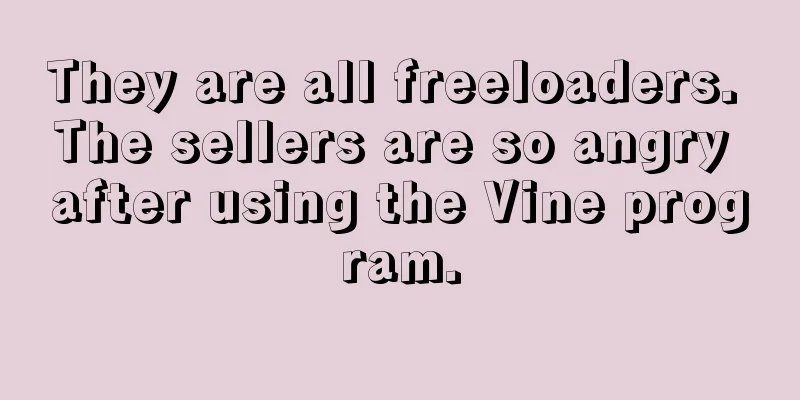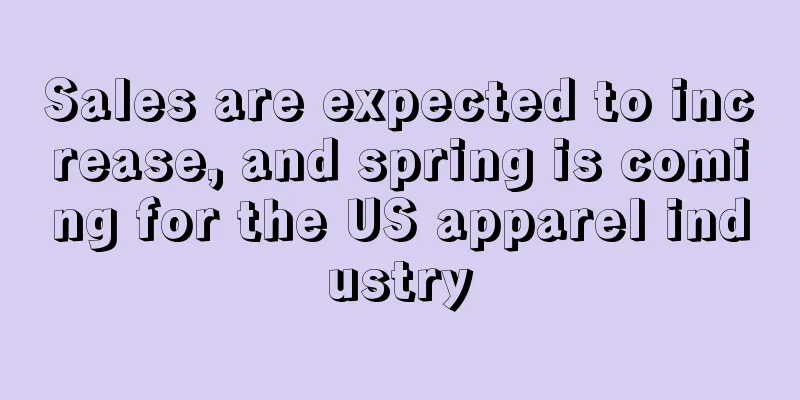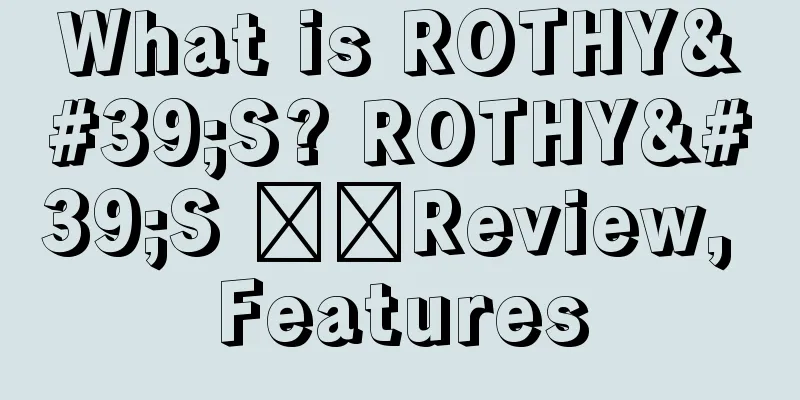They are all freeloaders. The sellers are so angry after using the Vine program.

|
Anyone who has worked on Amazon knows that the most difficult part of operations is promoting new products, because new links have low weight and lack user reviews, making it difficult to attract consumers to place orders.
To this end, many sellers choose to participate in various activities organized by the platform, the most common of which is the Vine program.
Amazon Vine is a buyer review program. It is an exclusive review program launched by Amazon for brand sellers. It is a shortcut for sellers to quickly obtain high-quality reviews for new products.
Sellers can choose to add their products to Vine , and consumers who meet Vine qualifications will actively apply to use the product for free and leave high-quality reviews.
However, the Vine program is not a panacea for sellers to promote new products. There are also many cases where sellers have fallen into traps after joining the Vine program.
Recently, a seller posted a post complaining that he was badly cheated by the Vine program. According to the seller, he recently launched an acne patch for teenage acne and prepared 25 sets (each set worth $103) to participate in the Vine program.
I thought that even if I couldn't get all positive reviews, at least I could receive some real user feedback. However, the result was so shocking: not only were there not many positive reviews, but most of them were invalid reviews.
"I don't have acne problems, so I can't really tell if this product is any good," reads one 3-star review.
This operation directly confused the seller. If you don't need this product, why do you want to take it? And give it a three-star rating, which is simply unreasonable.
Another comment read: "I don't think the effect is very obvious. Maybe it works better on teenagers, but it's just average on adults."
The seller said speechlessly that this product was originally aimed at teenagers, and adults need to use adult-only products, and the two are completely different.
In the end, the seller received a total of 19 reviews, of which except for 5 that were serious reviews of the product, the other dozen or so reviews had nothing to do with the product.
Some sellers believe that consumers who meet Vine qualifications don’t have to spend money to buy things, so they don’t care what they order, and of course they won’t leave serious reviews. They just want to get something for free.
After this experience, the seller said that his impression of the Vine program has been greatly reduced, and he will be more cautious when promoting new products in the future. Amazon vine |
<<: Brand registration failed in February! Sellers: Don’t look for a service provider
>>: Selling goods is getting harder and harder! Shenzhen sellers turn into headhunters
Recommend
What is Alto Pharmacy? Alto Pharmacy Review, Features
Alto Pharmacy is an American digital pharmacy serv...
Shenzhen Dama founder is under investigation? Here is his latest response
Last Friday, Cross-border Communication issued an...
$9.9 billion! The U.S. pet treats industry is growing rapidly
In recent years, the snack industry for pets such...
What is KEYCEO? KEYCEO Review, Features
KEYCEO is a high-tech enterprise engaged in comput...
TikTok Insights: Parents are becoming more active on the platform
Since its launch, TikTok has attracted a large nu...
A single product supports the IPO! East China's big seller has made a net profit of over 100 million this year
Yuanfei Pet successfully completed its IPO with j...
Sellers, please note! “Same-day delivery” has become a new demand of overseas consumers
According to the latest survey data from foreign ...
Erik Bicycle Sales Soar, BOPIS Sales Rise Alongside It
Erik's Bike Shop knew that demand for its pro...
Search volume increased by up to 140 times, and the forecast of hot-selling products in the second quarter of Amazon is coming
Easter Products With the arrival of Easter, searc...
What is Amazon Affiliate? Amazon Affiliate Review, Features
Amazon Affiliate is a very special sales model of...
Amazon devices are suspected of violating user privacy more than once!
Recently, according to foreign media reports, a T...
What is Selro? Selro Review, Features
Selro is a platform that provides all the tools to...
Tmall's "Thousand Stars Plan" was launched one month ago, with over 3,000 new brands signing up
"We have started meeting with Qianxing's...
What is Dealbunny? Dealbunny Review, Features
Dealbunny is a multifunctional website that integ...
What is NICETOWN? NICETOWN Review, Features
NICETOWN is a brand specializing in selling curta...









